What Do You Mean By Mulching?
Mulch is a material layered and applied to the earth as a landscape covering. It’s used to suppress weeds, retain moisture in the soil, prevent frost heaving, keep the soil cool, and make the garden bed look more attractive.
Read on to discover the best time to mulch, the types of mulch, and the advantages of mulching.
How To Mulch?
Given below are steps to apply mulch:
- Make self-mulching spaces under trees
- Self-mulching spaces are under trees where leaves can stay after falling.
- It is recommended to apply mulch at a depth of 2-3 inches.
- Refill mulch when required to maintain a 2-3 inches depth.
- Do not practice “volcano mulching,” that is, making piles of mulch against the tree trunk.
- Keep the mulch at a distance of 12-18 inches from the base of trees. If applying for aesthetic purposes, place no more than an inch over the rootball.
- Keep the mulch at a distance of 1-2 inches from shrubs.
When Is The Best Time To Mulch?
When it comes to mulching, timing is everything. Mulching early or even late can create problems for the plants. The best time to mulch a garden depends on the type of material for the mulching and the local climate. Usually, mid-to-late spring or early fall are the seasons for mulching since the soil is at its best temperature.
Mulching too early will slow the warming process needed by the soil while doing it too early in the fall can insulate the ground and affect the grass growth.
What Are The Types Of Mulch?
Organic Mulch: You can get these from natural materials, which eventually break down to provide nutrients for the soil. They include pine straw, shredded leaves, compost, straw, hay, and shredded wood/bark chips.
Synthetic Mulch: These are not natural materials. Instead, they typically consist of plastic or recycled rubber. The plastic-based synthetic bark is classified as woven or non-woven. Non-woven synthetic mulch is found to be more popular due to its ability to be produced in multiple colors and varying thicknesses. In Florida, there is a clear mulch made from polyethylene which is common due to its ability to solarize the soil to reduce weeds and soil diseases.
Inorganic Mulch: These are created from stone or mineral-based materials and used for weed control as well as decorative purposes. They include rock, gravel, and marble chips.
When talking about mulch, “organic” simply means the materials that were once living things – to differentiate something “inorganic,” such as a synthetic fabric or rock. Organic mulches typically decompose with time. Examples of organic mulch include pine straws, leaf litter, wood chips, etc. On the other hand, “inorganic” mulches do NOT decompose eventually. Examples of inorganic mulches include rocks, synthetic weed barriers, etc. These materials do not improve soil texture and do not add nutrients to the soil.
Now, let’s discuss the types of mulch in detail.
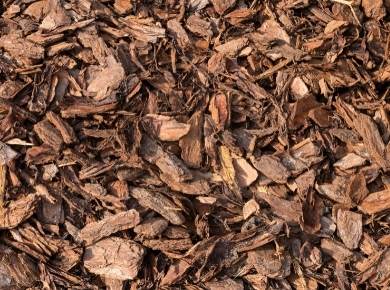 |
1. Pine bark is available in several sizes and is a byproduct of the forest industry. It generally has a dark brown color.
|
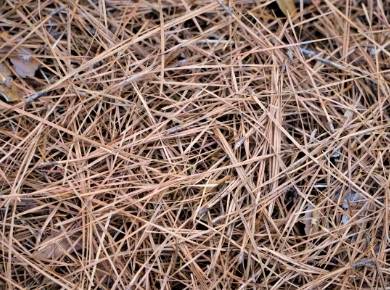 |
2. Pine straw generally is generated from pine plantations which produce wood and paper wood products. As they “knit together,” their needles are less probable to wash away compared to some other mulches.
|
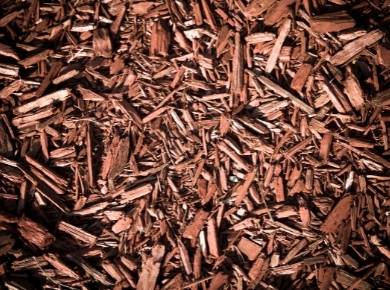 |
3. Eucalyptus mulch often comes from plantations in Central and South Florida, where the trees are grown particularly for this purpose. They grow fast, so this mulch is regarded as renewable.
|
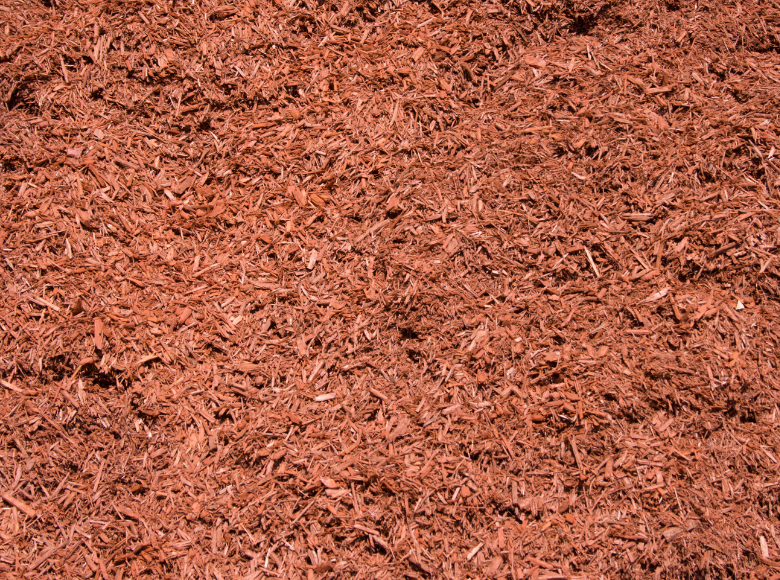 |
4. Melaleuca mulch is produced from tropical invasive trees. The seeds are killed at a high temperature to cure the product so they won’t sprout in your garden.
|
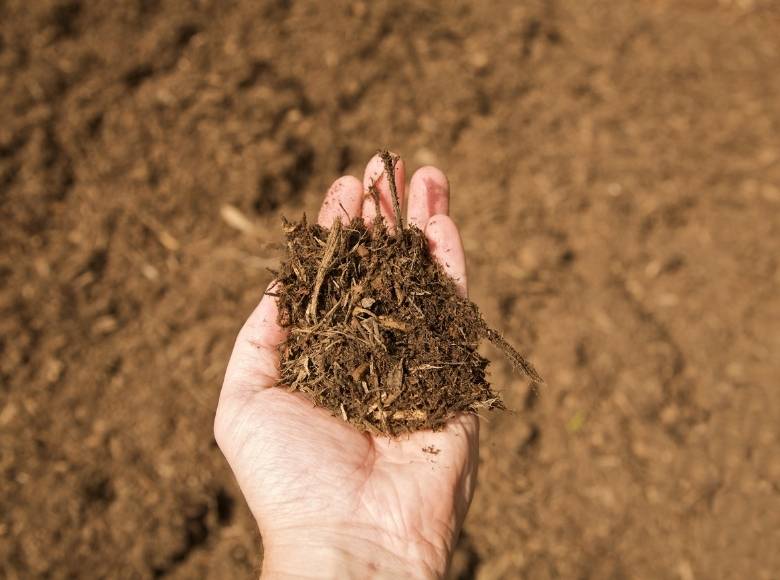 |
5. Mixed hardwood mulch is made from recycled pallets, scrap lumber, or tree stems very small for use in wood or paper production.
|
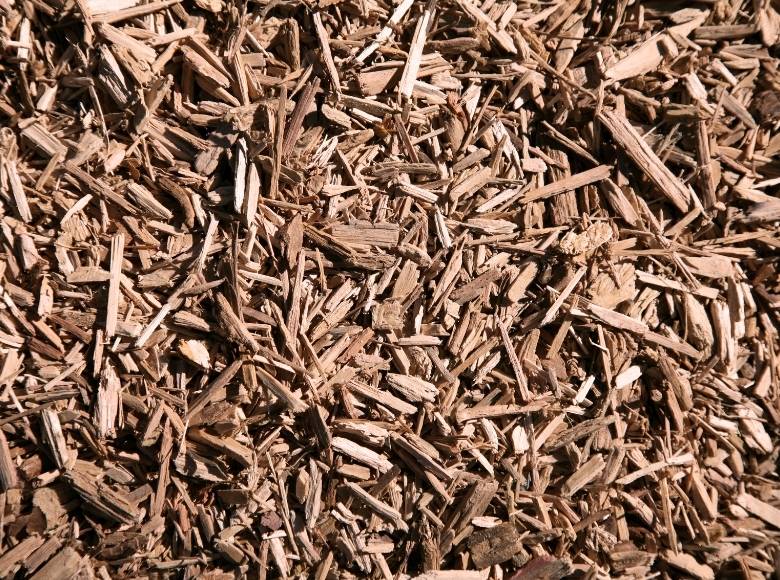 |
6. Cypress mulch may be generated from the waste wood produced in the production of flooring, lumber for fencing, furniture, and other products. However, it may also be generated from whole trees cut from wetlands. |
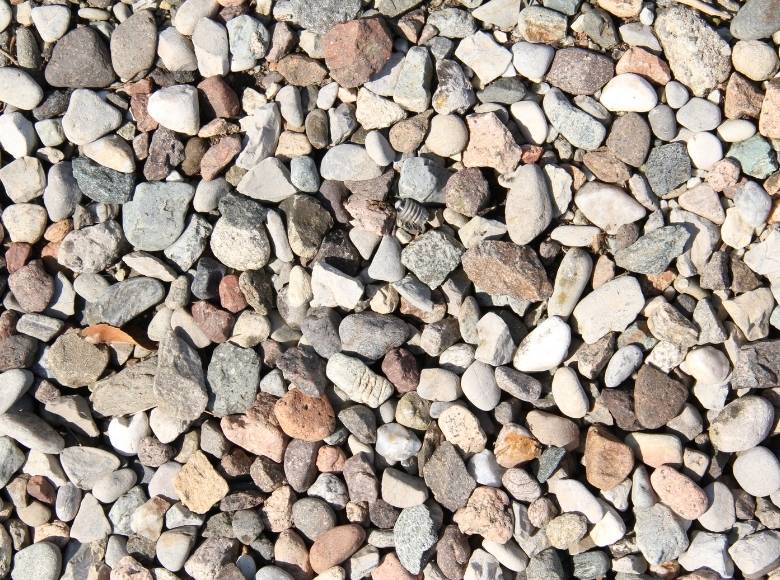 |
7. Gravel, pebbles, or shell can sometimes be helpful in pathways or borders, but they won’t play a part in the soil’s water-holding capacity or nutrient content.
|
What Are The Advantages Of Mulching?
Following are the advantages of Mulching:
- Weed Control: Use the clippings from your pruned trees for mulching instead of disposing of it. Mulching will reduce your workload as it suppresses weeds from growing. You can quickly remove weeds that manage to sprout since their roots will be shallow.
- It Helps Retain Water: Mulch aids trees, shrubs, and garden beds in retaining moisture. There’s still a need to water your plants less frequently, so you can save money on utility bills.
- Improve Aesthetic Appeal
- Source of Nutrients: Organic mulches decompose, and as they break down, they provide nutrients such as nitrogen to plants.
- Insulates Ground Temperature: As seasons change and weather shifts, mulch can help insulate the ground and your plants to gradually adjust to changing temperatures, rather than being exposed to fluctuating weather.
Mulching helps you to improve soil and minimize weeds. Visit the Down To Earth Landscape & Irrigation website for all your landscaping needs and get access to lawn care maintenance tips.

